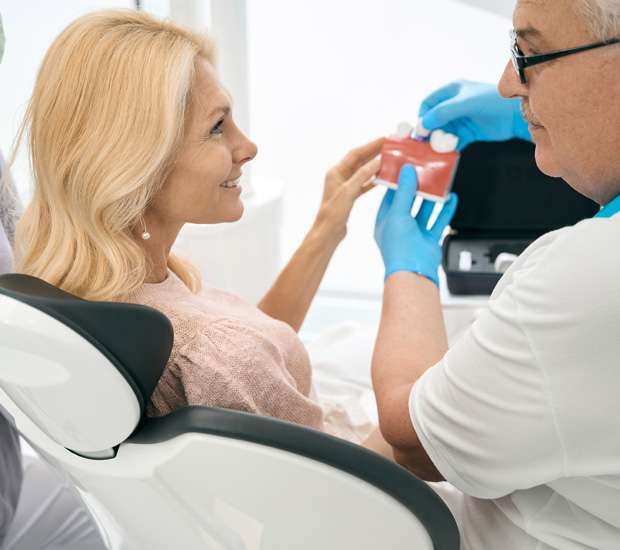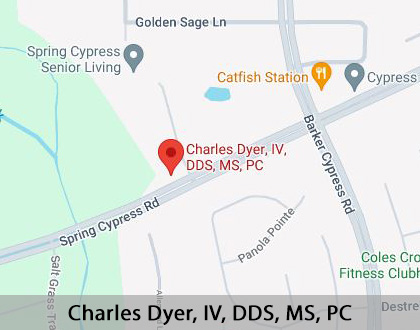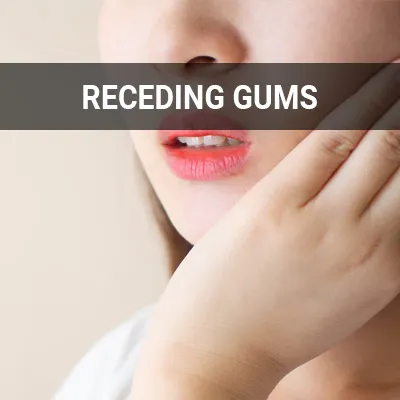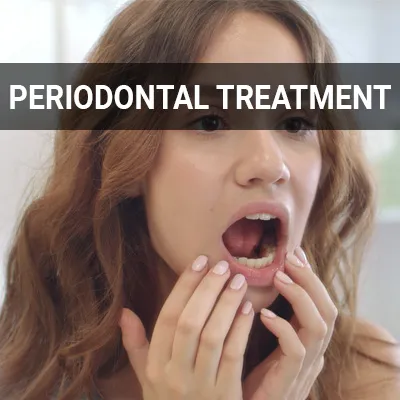Gum Surgery Cypress, TX
Gum surgery is an umbrella term describing the types of surgery that help restore and strengthen gums affected by periodontal disease. Also known as gum disease, this condition threatens oral health by attacking the structures that support the teeth. Gum surgery helps stop infection, gum recession, and tooth loss caused by gum disease.
Gum surgery is available at Charles E. Dyer IV, DDS, MS, PC in Cypress and the surrounding area. Our team can help you combat the effects of periodontal disease and help you keep your mouth healthy. Call our office at (281) 213-0900 for more information on our procedures or to schedule an appointment.
What Is Gum Surgery?
A periodontist performs gum surgery to slow down the destruction of periodontal disease and replace gum tissue destroyed or damaged by the disease. Often, a deep cleaning is not enough to clear the mouth of bacteria, and practitioners must perform surgery to remove the buildup of plaque and tartar under the gum line. Gum surgery is also necessary when periodontal disease has caused gums to recede so far they are no longer providing proper protection and support of teeth.
The need for gum surgery is high. Gum disease is not only a national issue but also a global one. Nearly half of all adults in the US have a form of gum disease, and severe periodontitis is the sixth-most prevalent condition worldwide. This means millions of people will need some type of gum surgery to prevent tooth loss.
“Gum disease is not only a national issue but also a global one.”
Types of Gum Surgery
There are several surgical methods used to repair and restore gums damaged by periodontitis. Four of the most common gum surgeries include:
- Crown Lengthening. This is a procedure in which a periodontist removes excess gum tissue from the teeth, making them appear more normal in size. This procedure has both cosmetic as well as gum disease-fighting benefits.
- Gingival Flap Surgery. In this procedure, the periodontist or surgeon folds back a flap of the gum to remove bacteria that are not accessible without surgery. After the bacteria, tartar, and plaque are cleared, the flap is stitched back into place more securely against the teeth. This is also known as pocket reduction surgery.
- Gum Grafting. During this procedure, also known as a soft tissue graft, the gum tissue is taken from the patient or a donor and placed where gum tissue is destroyed or has receded due to periodontitis.
- Regeneration. Like in flap surgery, the periodontist folds back a flap of gum tissue and removes the harmful bacteria. Then the practitioner inserts tissue grafts, membranes, and tissue-stimulating proteins to stimulate the growth of new healthy gum tissue.
A periodontist may recommend one or more surgical interventions depending on the progression of a patient's gum disease.
“There are several surgical methods used to repair and restore gums damaged by periodontitis.”
Conditions Requiring Gum Surgery
Gum disease is the most common reason for gum surgery. The aim of gum surgery is both restorative and preventative. Flap surgery allows the periodontist to clean areas of the teeth that cannot be reached by non-surgical methods such as scaling and root planing. It also aims to reduce the depth of periodontal pockets around the teeth in order to stop harmful bacteria from causing the gums to recede or threaten underlying bone tissue. Gum grafting and regeneration treat gum recession and build the gums up to provide the proper support of the teeth and protection of the roots.
“Flap surgery allows the periodontist to clean areas of the teeth that cannot be reached by non-surgical methods such as scaling and root planing.”
Check out what others are saying about our dental services on Yelp: Gum Surgery in Cypress, TX
Benefits of Gum Surgery
For many patients facing potential tooth loss due to periodontal disease, gum surgery offers them a way to save their teeth. While gum surgery cannot completely reverse periodontal disease, it allows patients a way to keep their gums and underlying supporting tissues intact. Those who undergo gum surgery will benefit from improved oral health and better breath because of the reduction in harmful bacteria. Also, pain and tooth sensitivity are reduced thanks to improved gum tissue protecting tooth roots.
Gum surgery can have cosmetic benefits as well. Crown lengthening and gum contouring are both procedures that help treat gummy smiles in which the gums appear too large in proportion to the teeth. These procedures refashion a person's gum line to make it more aesthetically appealing and help those with excess gum tissue feel more confident in their smiles.
“Those who undergo gum surgery benefit from improved oral health and better breath because of the reduction in harmful bacteria.”
Questions Answered on This Page
Q. How big is the need for gum surgery?
Q. What are the different types of gum surgery?
Q. What problems does gum surgery address?
Q. What are the benefits of gum surgery?
Q. What is the gum surgery recovery process like?
People Also Ask
Q. What conditions can be treated by oral surgery?
Q. Why would I need a periodontist?
Q. What can an oral cancer screening reveal?
Treatment and Recovery Process
Our team will do a thorough exam involving a thorough check of the mouth to make sure we determine the right surgery for the patient. Patients should disclose any medication they are taking or any other relevant medical information that might affect the outcome of their surgery. We will make sure the patient is a good candidate for surgery. Smoking is very harmful to the healing process. Therefore, patients are urged to abstain from smoking prior to the procedure.
The length of the procedure will depend on the patient and course of treatment. However, the typical gum surgery takes around two hours. The patient will be numbed in the treatment area with a local anesthetic. Many patients do not find sedation necessary, but it is available for more involved procedures. Deep cleaning is a part of most procedures followed by the suturing of gums back in place.
The periodontist will provide the patient with detailed aftercare instructions. It is good for the patient to understand them ahead of time. Patients are encouraged to use an antiseptic mouthwash to clean the affected area and prevent surgical site infections. Soft foods are recommended for the days following surgery, and patients should continue to avoid smoking. A follow-up appointment is typically scheduled one to two weeks post-surgery to check the healing process and remove any stitches.
“The length of the procedure will depend on the patient and course of treatment. However, the typical gum surgery takes around two hours.”
Frequently Asked Questions
Q. How long does it take to heal from gum surgery?
A. Healing and recovery times are different for each patient. However, we advise patients to allow at least two weeks for the healing process to complete. Be sure you do not smoke during that period and keep any follow-up appointments you have. It is also important to keep up with the aftercare instructions and finish any course of prescribed medication.
Q. How should I prepare for gum surgery?
A. Preparation instructions will also vary based on the surgery and whether or not you plan to be sedated. If you do employ sedation, be sure to have someone available to drive you home after the procedure. Eat a light meal one to two hours before the procedure and avoid alcohol for at least 24 hours prior to surgery. Make sure the practitioner knows about all your medications.
Q. How should I care for my mouth during the recovery period?
A. Your oral hygiene will be a little different in the days following surgery as you must be careful with the treatment site. Starting 24 hours after surgery, you may rinse your mouth with saline solution or antiseptic mouthwash. Gently brush your teeth and tongue with a soft-bristled toothbrush, avoiding the surgical site.
Q. When should I call the office?
A. Patients are urged to call the office if they experience any unexpected symptoms. These include fever and excessive bleeding. If there are any signs of infection, such as increased swelling or warmth in the treatment area, call our office. You should also contact us if you experience worsening pain that is not made better with medication.
Q. How much does gum surgery cost?
A. The cost is determined by the type of surgery and may vary by provider. If the procedure is purely for cosmetic reasons, insurance may not cover it. We recommend each patient contact their insurance about the specifics of their coverage.
Start Feeling Better – Visit Us Today
By visiting us as soon as possible, our team can help get you the professional treatment you need. Instead of waiting around and allowing the symptoms to get worse, we can provide you with treatment options.
Definitions
Call Us Today
Contact Charles E. Dyer IV, DDS, MS, PC to learn more about gum surgery and how it can help restore your smile and protect your teeth. Call today at (281) 213-0900 to schedule an appointment for a consultation. We look forward to answering your questions.
Helpful Related Links
- American Academy of Periodontology (AAP). American Academy of Periodontology (AAP). 2023
- Center for Disease Control and Prevention (CDC), Periodontal Disease Page. Center for Disease Control and Prevention (CDC), Periodontal Disease Page. 2023
- WebMD, What Is a Periodontist?. WebMD, What Is a Periodontist?. 2023
About our business, license, and website security
- Charles E. Dyer IV, DDS, MS, PC was established in 2007.
- We accept the following payment methods: American Express, Cash, Check, Discover, MasterCard, and Visa
- We serve patients from the following counties: Harris County, Washington County, and Waller County
- We serve patients from the following cities: Cypress, Houston, Katy, Spring, The Woodlands, Brenham, Waller, Sugar Land, Jersey Village, and Hempstead
- TX (License #21174). View License Information and Specifics
- National Provider Identifier Database (1285771352). View NPI Registry Information
- Healthgrades. View Background Information and Reviews
- Norton Safe Web. View Details
- Trend Micro Site Safety Center. View Details
Back to top of Gum Surgery









